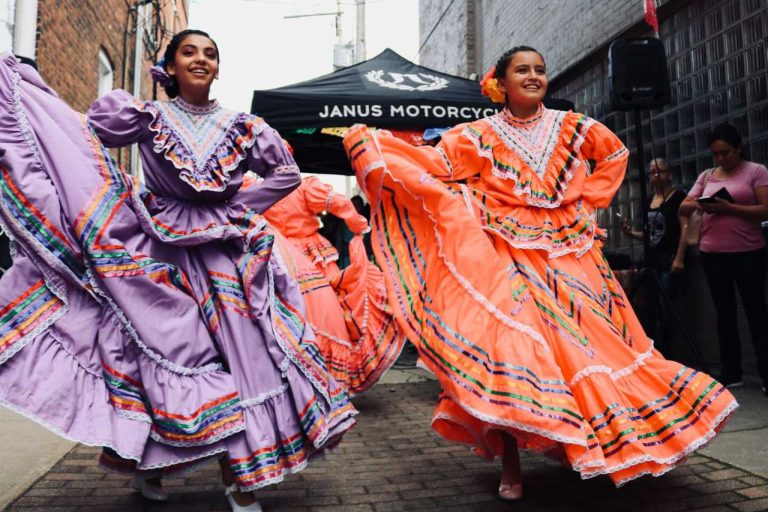
Funny Spanish Sayings To Sound Like a Native Speaker
DATE:
Just like in English, Spanish is absolutely full of expressions and proverbs that don’t always have a direct translation or an equivalent.
And each region in the Spanish-speaking world has its own expressions, adding to the variety of this beautiful language.
So the one thing that really shows the difference between a Spanish learner and a native Spanish speaker is the ability to use funny phrases that make your speech sound more natural.
But of course, it doesn’t help to just memorize the expressions and say them whenever you want; you have to learn them well until they become part of your Spanish vocabulary organically.
The best advice is to find a couple of your favorite funny Spanish phrases and practice using them until they come to you naturally.
To help you out in with this language-learning endeavor, here’s a list of our favorite 20 funny Spanish phrases
Top 20 funny expressions in Spanish
1. No sabe ni papa
Literal translation: He doesn’t even know potato.
This is an easy expression to practice if you’ve just started to learn Spanish. It basically means someone doesn’t know or doesn’t understand anything at all.
You could use it when you want to say that someone is completely uninformed about a topic.
- Habla mucho, pero no sabe ni papa de política. – He talks a lot, but he doesn’t really know anything about politics.
You could also use it with the verb entender, instead. For example, if you are completely lost in a Spanish class.
- Mañana tenemos un examen y no entiendo ni papa – Tomorrow we have an exam and I don’t understand anything at all.
2. Ponerse las pilas
Literal meaning: Put your batteries in
This is one of those common Spanish phrases that actually isn’t too difficult to figure out. If someone puts their batters in, it means that they need to do something with more energy.
Spanish speakers will say this to encourage someone to hurry up and do something. It can be used positively or negatively, depending on the speaker’s tone.
- Venga, chico, ponte las pilas, nos vamos en 5 minutos – Come on dude, hurry up, we’re leaving in 5 minutes.
You can also use it as a synonym for espabilar – a useful word that means “to wake up / pay attention”. So when someone is doing a bad job at something that requires close attention and they’re acting airheaded.
- ¡Deja el móvil y ponte las pilas! – Put your phone down and pay attention!
One of the most hilarious and fun Spanish lingo to practice. Check our guide on Venezuelan Slang Words and Phrases.
3. Tomar el pelo
Literal translation: Take the hair
This one has a very similar expression in English: pull one’s leg.
You say this to let someone know that you’re just messing with someone in a light-hearted way. Though from an outside perspective, the English version is just as strange as any of the other funny Spanish phrases.
This expression can be saved for those times when you think they’re might be a language barrier and you want it to be clear that you mean no harm.
- No te enfades, tío, solo te estoy tomando el pelo. – Don’t get mad, dude, I’m just pulling your leg.
4. De Guatemala a Guate-peor
All of these funny Spanish phrases are just full of puns and other kinds of play on words.
This one is no exception. It literally means, “from Guatebad to Guate-worse”, making a pun out of the Central American country.
As you might be able to figure out, this is a funny Spanish expression that means that something went from bad to worse. It’s usually from a paradoxical situation where you try to fix something and it just gets even worse.
In the US, the equivalent expression would be “out of the frying pan and into the fire”.
You can use it with different verbs depending on the context. “Pasar”, “Ir” and “Salir” are all options, with some of the options being more common in specific Spanish-speaking countries.
It’s a common expression used by politicians, as well.
- Pasó / Se fue de Guatemala a Guatepeor: no queríamos que gobernara PP y ahora gobierna VOX. – From the frying pan into the fire: we didn’t want PP (a right-wing party) to govern, but now VOX (a far-right wing party) does.

5. Creerse la última Coca-Cola del desierto
Literal meaning: to believe yourself to be the last Coca-Cola in the desert
This is another one of those humorous Spanish phrases that are pretty easy to figure out the meaning.
If you think that you’re the last Coca-Cola in the desert, you think that you’re really important. An equivalent English phrase would be someone who thinks “they’re all that and a bag of chips”.
6. Qué pedo
This phrase literally means “what a fart” and is incredibly common to hear in Mexico. Native speakers will use this as a greeting.
The English equivalent would simply be “What’s up?”
In the Spanish language, there are a ton of different ways to say “hello” to someone and they vary depending on the region.
And Mexico is famous for having some very creative Spanish phrases. So if you have any Mexican friends, you can impress them with this greeting.
7. Tener mala leche
This is the start of the section on different Spanish phrases that include the word “leche”. As you start to learn Spanish, you’ll notice that “leche” is one of those annoying words that have a million meanings, so it doesn’t just mean “milk”.
So native Spanish speakers don’t use this to say that you have bad milk, this phrase means that you have bad luck. It’s commonly used almost everywhere in the Spanish-speaking world.
- Nunca le pasa nada bueno, tiene muy mala leche. – Nothing good ever happens to him, he has really bad luck.
8. Estar de mala leche
Literal meaning: To be of bad milk
This is one of the funny Spanish phrases that are especially common in Spain. It means someone who is in a bad mood or someone who is aggressive for no reason.
The origin of this meaning comes from the belief that breast milk affects a baby’s personality. So if the milk is “bad”, the child will be, too.
In Argentina and Chile, it’s used when someone says something offensive and in Panama, the verb ser is used instead and it refers to behavior that is always ill-intended.
- Ojalá que Karen me dejara en paz, siempre está de mala leche. – I wish Karen would leave me alone, she’s always in a bad mood.

9. A toda leche
Another one of the common Spanish phrases using milk, “at all milk” actually means “really fast”.
This one is often used in Spain. A close English equivalent would be “like a bat out of Hell” or simply “in a hurry”, although the first one shares the same connotations.
- Mi madre conduce a toda leche y me da mucho miedo – My mom drives like a bat out of Hell / in a hurry and it scares me.
Although only 3 funny expressions are listed here, there are a ton of funny Spanish phrases that use the word “leche”. Some others are “ser la leche”, “leches!” and “de la leche”.
So now you can impress your Spanish friends with these phrases and they’ll tell you, “eres la leche!”
10. Más se perdió en Cuba
This is one of the funny Spanish phrases with a historical reference. It’s used almost exclusively in Spain and it literally means “more was lost in Cuba”.
It comes from 1898, when Spain lost control of Cuba because of the war with the US and the independence movement in Cuba.
So this expression is a way of saying “it could be worse”. So when something bad happens, you can remind yourself that it could be worse or that the situation isn’t really that important.
There is also an alternative to the expression which is longer: Más se perdió en Cuba y vinieron silbando (More was lost in Cuba, and they came back whistling).
The second part of the expression comes from the fact that the soldiers and the working class families didn’t even want to take part in the war in Cuba, so Spain lost a lot, but the working class families were happy to come home.
The good part of learning Spanish is that sometimes you’ll learn a little history along the way!
- “Mamá, se me rompió mi juguete favorito”, “Hija, más se perdió en Cuba”. – “Mom, my favorite toy broke”, “Sweetie, it could be worse”.
Check out our guide to the Cuban Slang Words and Phrases, and learn one of the most inventive Spanish lingo of the world
11. Más cara que espalda
If you’re speaking Spanish and you use this expression, you’ll really impress your friends. That’s because it uses the colloquial meaning of “cara”.
This literally means “more face than back”, but it’s used when someone shamelessly takes advantage of a situation. It could also be someone who is cheeky.
It comes from the phrase “tener mucha cara”, which means someone who shamelessly does something that’s not quite appropriate.
It’s not necessarily a horrible thing, but more like something that is slightly offensive or socially unacceptable.
- “Me pidió que le prestara dinero otra vez” “Tiene más cara que espalda”. – “He asked to borrow money from me again” “How cheeky!”
12. Tirar la casa por la ventana
This is a funny Spanish expression that literally means “throw the house out the window”.
It’s used for situations when absolutely no expenses are spared, especially when people spend more money than they can afford. An English equivalent could be to “go all out”
As an interesting Spanish fact, this expression comes from the 18th century in Spain, when the king organized a lottery, where the person who won the lottery would get enough money to throw all their old furniture out the window. So now people use this to say they spend (or waste) a lot of money in celebration.
- Yo prefiero una boda sencilla que tirar la casa por la ventana. – I prefer a smaller wedding to going all out on one.

13. Por si las moscas
Literally: “For if the flies”.
This is an expression you can easily incorporate into your daily life when you’re speaking Spanish. The literal meaning might seem a bit odd, but it just means “just in case”.
It comes from a tradition where people would cover their food to protect it from the flies. When they covered the food, they would say “por si vienen las moscas…”.
- Me llevo el paraguas por si las moscas. – I’m going to bring the umbrella just in case.
14. Estar como una cabra
Literally: “to be like a goat”.
But it has the same meaning as in English when we say someone is “off their rocker”. It just means that someone is crazy.
Apparently goats behave strangely sometimes, so someone that está como una cabra just acts weird or is a little bit crazy.
You can use this phrase in a light-hearted way with your Spanish friends, too.
- Le gusta la pizza con piña, está como una cabra. – He likes pineapple on the pizza, he’s so crazy.
15. Donde Cristo perdió el zapato
Literally: Where Christ lost his shoe.
This funny expression means that something is really far away. It’s similar to the English expression “in the middle of nowhere”, although it doesn’t necessarily need to be a deserted area.
This is a great Spanish phrase that really shows the variety of the language since almost every single Spanish-speaking region has its own version of this expression.
Instead of “zapato”, you might hear: sandalia, chancla, gorro, sombrero, mechero, o alpargata.
- Es imposible aparcar en el centro, voy a tener que ir aparcar donde Cristo perdió la sandalia. – It’s impossible to park in the city center, I’m going to have to park in the middle of nowhere.
16. Mandar a alguien a freír espárragos
Literal meaning: Send someone to fry asparagus
This is one of many hilarious Spanish euphemisms. Basically, when you tell someone to go fry asparagus, you’re telling them to F off. Many countries have different phrases to mean the same thing.
For example, this same expression in Mexican slang is “mandar a alguien por un tubo”.
But this expression is a euphemism, so it’s not so vulgar. It is by no means polite, but there are certainly worse ways to say something similar.
Maybe if your friend is annoying you, you might feel comfortable enough to say this to them (without losing your friendship).
- Tío, estoy estudiando, vete a freír espárragos. – Dude, I’m studying, leave me alone.

17. Me pica el bagre
Literally: The catfish is biting me.
This funny Spanish phrase is common throughout different parts of Latin America, especially in Colombia and Argentina.
The origin of the phrase isn’t completely known and there are lots of different theories. The meaning, however, is clear: to be hungry.
It’s similar to saying that you’re starved or famished or that you could “eat a horse”. So if it’s getting close to dinner time, you can use this expression.
- Me pica el bagre, ¿pedimos algo? – I could eat a horse, should we order something?
Check out our guide of the most colorful Colombian Slang Words and Phrases to sound like a real parcero.
18. Dame pan y dime tonto
Literal meaning: Give me bread and call me stupid
This is an expression to use when you want to say that the benefits of something outweigh the criticisms you might receive. Or to say that you don’t care about the criticisms.
It’s used in some Latin American countries and in the south of Spain. Basically, it describes the “I don’t care what people say, as long as I get what I want” attitude.
It’s a tricky saying because it can be used both positively and negatively, depending on the intention of whoever is saying it.
For example, it can be positive if the person doesn’t care what people say about them. Kind of like saying “haters gonna hate”.
But it can also be used negatively, to criticize someone who continues to do something inappropriate after already being told it’s not a good idea.
So make sure you pay attention to how someone is saying the expression and to their tone of voice to not misinterpret the meaning, though the first one is more common.
- Mi jefe siempre está de mala leche conmigo, pero bueno, dame pan y dime tonto. – My boss is always in a bad mood with me, but oh well, as long as I get paid…
19. Ser pan comido
This is another expression that should be really easy to remember. Literally, it means “to be eaten bread”.
In English, we have an equivalent that is really similar: to be a piece of cake.
So whenever you want to describe something as being really easy to accomplish, you can use this expression. It’s used ubiquitously throughout the Spanish-speaking world, so you don’t have to worry about any regional issues.
- Aprender el español es pan comido. – Learning Spanish is a piece of cake.
20. No ver tres en un burro
This last funny Spanish phrase is another expression that doesn’t seem to make a lot of sense at first but has a great story attached.
Literally, it means “Can’t see three in a donkey”.
It comes from Andalusia (the south of Spain), where at the beginning of the 20th century, many people in the rural areas were still illiterate.
So when these people needed glasses and saw an ophthalmologist, they couldn’t do the normal eye tests of reading letters off a board that is far away. Instead, the eye doctors had to use different images that weren’t words or letters.
As you might have guessed, one of those images was a donkey with three little people. So if people went to the eye doctor and they were short-sighted, then they couldn’t “ver tres en un burro”.
Eventually, the saying just stuck, so now when someone has a bad vision or can’t see something well, they’ll use this expression.
- José siempre se sienta en primera fila porque no ve tres en un burro. – José always sits in the front (of the class) because he’s blind as a bat.

Sayings in Spanish: use what you learned
This list is nowhere near complete, there are tons of expressions out there, just waiting for you to learn them! Each region will have its own, so speak with your friends or family from different countries and ask them what their favorite funny Spanish phrases are.
There are also a ton of expressions that have direct English equivalents: “hablando del rey de roma” = Speak of the devil; “No hay mal que por bien no venga” = Every cloud has a silver lining. Really, we could be here all day!
The key to mastering Spanish expressions is to practice them in context. Try to pick just a couple of your favorites from this article and wait for the right moment to use them.
Another good option to really get it to stick is to write a short story in Spanish. This way you can guarantee to create an opportunity to use some of these expressions in a context that makes sense.
After writing them down in a story like that, it’ll be a lot easier for you to remember them and soon they’ll come to you automatically!
But of course, once you feel confident enough to use a couple when you’re speaking Spanish, go ahead and sign up for a free private class or a 7-day free trial of our group classes so you can practice what you learned.











